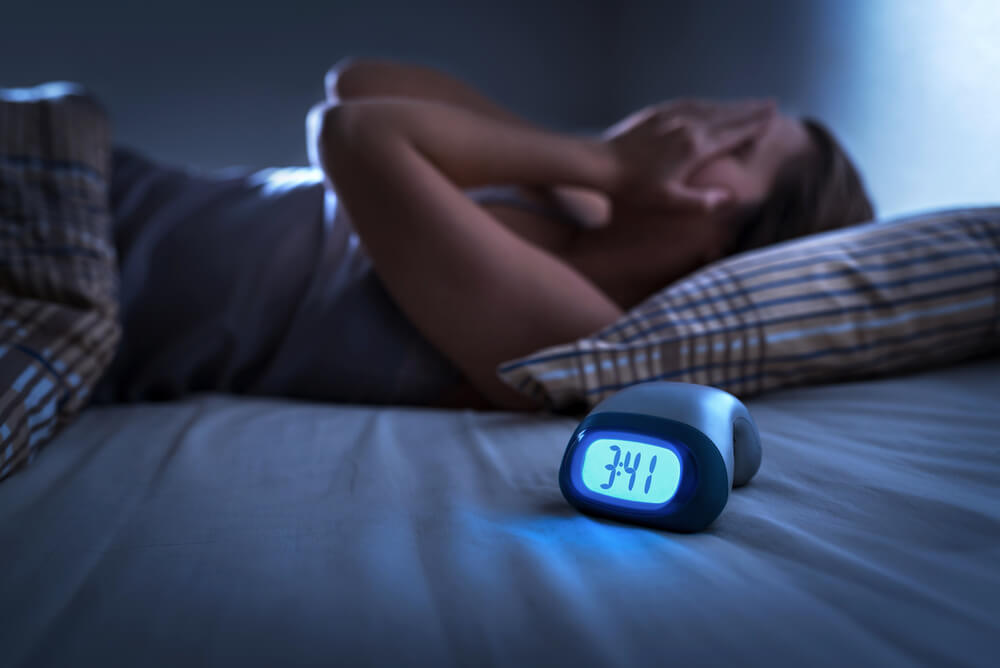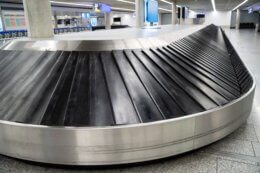
Nearly 10% of Aussies are getting less than 4 hours of sleep each night with an average of just 6.4 hours per night around the country, according to a survey by Compare the Market.
Gold Coast and Wollongong are our most rested cities with Perth burning the midnight oil as Australia’s least rested, surviving on an average of 5.79 hours of sleep a night.
Men tend to get slightly more sleep than women, as do those aged 16-24, who nod off for 6.87 hours each night.
The biggest issues for sleepers:
- The overwhelming majority (38%) said it was due to stress, anxiety or depression
- Nearly 25% put it down to needing the toilet in the night
- 25% of those surveyed had too much stimulation before bedtime (e.g being on your phone or watching TV)
- Having a medical condition such as sleep apnoea or restless leg syndrome (14%)
- 14% kept awake because their partner snores! Perhaps unsurprisingly, more women than men are likely to be affected by a partner snoring.
In terms of dreaming, over 30% of the population say they rarely ever remember their dreams. However, the most common themes of those surveyed include being chased (14%), falling (13%), or something involving sexual relations (12%).
Anthony Fleming, General Manager of health insurance at Compare the Market, said:
“As seen with our research and expert insight, sleep and health are very much intertwined and it’s super important that you take the necessary steps to look after both aspects as much as you can.”
“If sleep is impacting your health, it’s vital that you inform your health insurance provider, so that you don’t run the risk of invalidating your policy.”
While it’s a rough night for a lot of Aussies, the news is worse for our American friends with 14% of Americans getting less than four hours of sleep a night and an average of 6.29 hours.
| Rank | City | Avg. hours of sleep a night |
| 1 | Gold Coast | 6.83 |
| 2 | Wollongong | 6.83 |
| 3 | Sunshine Coast | 6.72 |
| 4 | Central Coast | 6.70 |
| 5 | Melbourne | 6.52 |
| 6 | Adelaide | 6.47 |
| 7 | Sydney | 6.42 |
| 8 | Brisbane | 6.30 |
| 9 | Canberra | 5.91 |
| 10 | Perth | 5.79 |
Your burning sleep questions answered, and top tips
Since a lack of sleep can be a major issue, we spoke to Dr. Kat Lederle, Sleep Therapist at Somnia, to answer your sleep questions.
How many hours of sleep do you recommend people should get a night, and how can a lack of sleep affect you?
“There’s no one-size-fits-all number, but most people need between 7 and 9 hours of sleep. Approximately 1% of people need 4-5 hours, which means that the vast majority who are reporting less than 4 hours sleep need more.
“A lack of good quality sleep can be associated with a range of physical illnesses and can put you at risk of diabetes, obesity, cardiovascular diseases and certain cancers. It also impairs your cognitive performance, your memory and levels of alertness, as well as your emotions. If you haven’t slept for long enough, you’ll likely become more irritable, anxious and less tolerable of stress.”
Why is waking up in the night so common, and how can we avoid restless sleeping patterns?
“Waking up during the night is normal – we all do it every 90 minutes at the end of a sleep cycle. Usually, these awakenings are very brief (which is why we don’t remember them) but for those who experience maintenance insomnia, they wake up fully and struggle to get back to sleep.
“In these cases, the brain can ‘hijack’ the natural awakening and make us mentally work on our to-do lists, or worry about something, when we should be resting.
“While you can’t consciously avoid waking up at night, prepare yourself in the day to support your sleep at night. Give your mind the chance to process your day before bedtime; go through your to-do list and then add three things you’ve achieved that day. During your day, take mini-breaks and be mindful of what you eat and drink, and give yourself an eating window of no more than 12 hours.”
What’s the best way to de-stress before bedtime?
“Prepare for your sleep from the moment you wake up. Hold off checking your phone and instead open your curtains, greet your family or partner, turn on the radio and have a shower. Maybe then, with a cup of coffee, you can open your emails.
“It’s also important to expose yourself to natural light in the morning and afternoon to confirm with your body clock that your day has started. In the evening, you need to confirm that night has started, so keep the lights dim and be mindful of using screen devices.
“Eat a healthy diet, avoid caffeine in the afternoon and make sure you finish your dinner 4 hours before bedtime. Also, whilst exercise is important, avoid it too close to bedtime. Don’t expect that a tiring exercise regime will guarantee you a good night’s sleep, but rather treat it as a healthy habit that will support your overall sleep and health.”
What do dreams of falling and being chased mean?
“If you dream that you’re falling, ask yourself whether you feel insecure or unsafe in any way, and think about what could be triggering this. Similarly, if you dream of being chased, do you feel threatened – either directly or indirectly – in your daily life? Perhaps you’re anxious about something or someone, and you sometimes feel like you can’t cope. If you’re regularly experiencing these types of dreams, ask yourself what you’re worried about to get to the root cause.”
“If you’ve been struggling to get a good night’s sleep, we hope these tips will help you to change your routine and feel more well-rested!”
Notes to editors:
- Google searches taken from keywordtool.io are accurate as of 21.10.21
- A survey of 1,510 Americans and 503 Australians was carried out by Censuswide in September 2021
For more information, please contact:
Chris Ford | 0411 560 116 | [email protected]
Compare the Market is a comparison service that takes the hard work out of shopping around. We make it Simples for Australians to quickly and easily compare and buy insurance, energy, travel and personal finance products from a range of providers. Our easy-to-use comparison tool enables consumers to find products that best suit their needs and back pocket.







